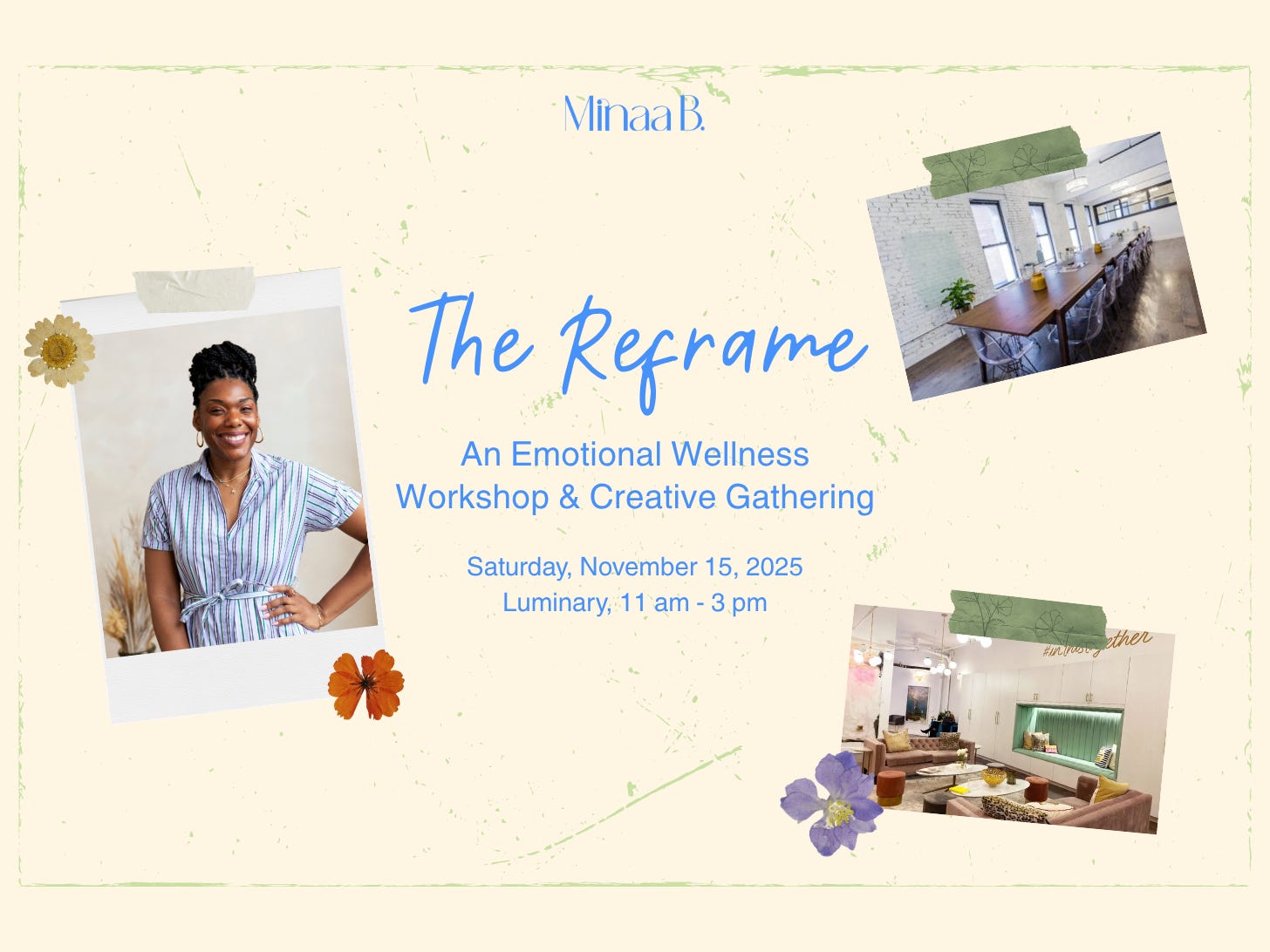Navigating Sibling Rivalry in Adulthood
Strategies for building a healthy relationship with your competitive sibling (or friend)
There is nothing worse than having a sibling who is also your biggest hater.
You would think that rivalry and competition are something that siblings outgrow over time. When you’re young and immature, still trying to understand your sense of self as your personality develops, fighting over who got the better birthday party or Christmas gift feels like a rite of passage for siblings.
But as a therapist, I’ve learned that rivalry often persists into adulthood. Rather than fading with age, it evolves into subtler forms:
Comparing careers
Giving backhanded compliments
Judging lifestyle choices
Perpetuating drama
This happens because family members remain trapped in established roles that maintain dysfunctional patterns.
Some of you might even be experiencing what feels like sibling rivalry with friends, coworkers, or others in your close circle. The patterns and roles we establish in our families can significantly impact our peer-to-peer relationships.
Sometimes we compete with our siblings or friends because:
We crave recognition and validation from family members or peers
We’ve internalized scarcity beliefs that suggest there’s only enough love, success, or attention for one person
We’re insecure about our own achievements and use others as measuring sticks
We’ve never developed a strong identity independent from our family
We envy the sibling or friend who is bold enough to live the life we’re too afraid to live (or because they received opportunities you didn’t growing up)
Jealousy, resentment, and competition within sibling (and peer) relationships can be exhausting to deal with. And because many people are taught to blindly remain loyal to family, we often feel pressured to sweep these issues under the rug or excuse poor behavior as “that’s just how they are.” However, many people overlook how an unspoken rivalry can gradually erode relationships. It creates emotional distance between siblings and can eventually lead to estrangement and damaged connections with others.
How to Deal With Your Competitive Sibling
1. Identify the old patterns still at play.
Many adult rivalries are echoes of unresolved childhood roles: “the responsible one,” “the rebel,” “the golden child.” Notice if you’re still being cast in these roles or unconsciously stepping into them. Awareness enables you to respond differently, rather than reacting on autopilot.
2. Address unspoken resentment with boundaries.
If certain conversations always lead to competition, like income, career wins, or family updates, it’s okay to steer away or set limits. In my own life, I learned that there are certain people I can’t have money conversations with because it stirs up their insecurities or jealousy. As a way to protect both myself and the relationship, I’ve learned that some topics can’t be shared with certain people.
3. Recognize when it’s about them, not you.
Sometimes a sibling’s competitiveness is fueled by their own insecurities. There’s a saying, “success is the best revenge,” and while it might feel tempting to prove yourself to others or “get back at them” by succeeding, it’s important to remember that people’s insecurities have nothing to do with you. Participating in their jealousy contest only reinforces the unhealthy dynamic.
Establish your chosen family.
When biological family relationships are strained by rivalry or competition, cultivate relationships with people who genuinely support you, want to see you succeed, and are excited to witness your achievements. These are the people I call your “chosen family” - close friends, mentors, or others who celebrate rather than feel threatened by your accomplishments.
Remember this: Sibling rivalry in adulthood doesn’t mean the relationship is doomed; it means there’s history to unpack and patterns to unlearn. Rivalry often says more about the family system we grew up in and the beliefs we internalized than about the present-day relationship.
Mindful Moment
Are you experiencing sibling rivalry in adulthood, whether it be with your siblings or peers? What would a healthier relationship with this person look like to you?
An Invitation
On November 15th, I’m hosting an in-person workshop in NYC on how to identify and reframe limiting thought patterns that are getting in the way of you reaching your goals.
Here’s a quick overview
📍 Location: Luminary, NYC
📅 Date & Time: November 15th, 2025 (11 am - 3 pm)
🎟️ Tickets: Early bird tickets are available until Oct 17th!
A big thank you to Luminary for being our venue sponsor. I’m looking forward to welcoming you into this space.
Connect With Me + Resources
I’m a therapist, the author of “Owning Our Struggles,” and the creator of The Siblinghood Theory. If you live in New York and are seeking a therapist, book a 15-minute consultation to learn more about my services. You can also follow me on Instagram for more mental health education. Here are other resources for you as well.
Take the relationship quiz: What’s Your Sibling Blueprint?
Listen to the latest episode of Mindful With Minaa





This was the reason I cut ties with my sister. She’s older than me, but my dad always compared her to me.
She flirted with my romantic partners and with men I liked, sometimes she ended up introducing me to men she ended up sleeping with. She chose a similar career and went to the same school (with my support and encouragement) only to turn everything into a competition about how her experience there was so much better than mine. She even created a rivalry between her mom’s side of the family and mine (we’re half-sisters), comparing our half-siblings even cousins.
This went on for years, I really tried, but it was impossible to maintain a healthy relationship, there were just too many things I couldn’t share with her. Thanks to my therapist I realized that the only reason I was still trying to stay close and on good terms was because of my nephew.
I guess, in an unconscious attempt to heal my relationship with her, I ended up repeating the same pattern with some friendships, but that is not the type of relationships I want to have, I want to celebrate others and be celebrated. I dont want to repeat those painful behaviors with anyone.
Now that my nephew is a teenager and is about to legally become an adult, we’re able to have a relationship that doesn’t involve her. I keep things respectful, cordial, but distant with her, and it’s truly been one of the best decisions I’ve ever made.